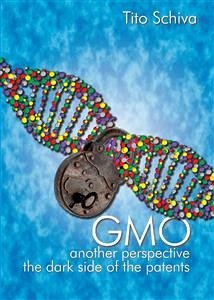Tito Schiva, geneticist and past Director of the Experimental Institute for Floriculture Sanremo I for 30 years, attended the UPOV Workshop (International Convention for the New Varieties of Plants Protection) as Italian delegate. In the pre-DNA period, together with A. Mercuri, he developed a method for genotype identification based on the isoenzymatic fingerprinting for plant varieties with a view to protecting intellectual property. At the advent of genetic transformation techniques, again working with A. Mercuri, he created dwarf compact plants on Limonium sp. using the ROL genes, and fluorescent flowers on Lisianthus and Rinchospermum using . GFP genes (Green Fluorescent Protein). So far the controversy on GMO has concerned essentially the wealthy and the environment not highlighting the consequences of the Patent on living matter.To apply a Patent on a gene provokes unique biological/economical synergy and has a great impact on our lives.Gunter Reimann, in “Patent for Hitler” (1942), showed how the Patent was stifling the development of technology. In this reality the food step crops appear to be the most vulnerable.Slowing down innovation is the most negative aspect of the Patent system, but the greatest tragedy lies in the political mistake of not pointing out the guidelines or worse forbidding the development of these bio-technologies, and then leaving this know-how as a privilege of the few.
Hinweis: Dieser Artikel kann nur an eine deutsche Lieferadresse ausgeliefert werden.
Hinweis: Dieser Artikel kann nur an eine deutsche Lieferadresse ausgeliefert werden.









